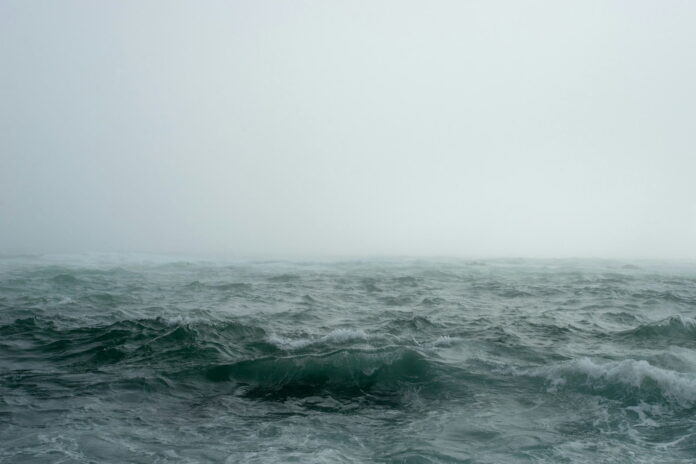Ocean acidification has emerged as a significant environmental issue, posing a threat to marine ecosystems worldwide. As the oceans absorb increasing amounts of carbon dioxide (CO2) from the atmosphere, their chemical composition changes, leading to a decrease in pH levels. This phenomenon, known as ocean acidification, has far-reaching consequences for marine life and biodiversity.
The Science Behind Ocean Acidification: Causes and Mechanisms
Ocean acidification primarily results from the absorption of atmospheric CO2 by seawater. When CO2 dissolves in seawater, it forms carbonic acid, which subsequently dissociates into bicarbonate and hydrogen ions. The increase in hydrogen ions causes the pH of seawater to drop, making it more acidic. This process is exacerbated by human activities such as the burning of fossil fuels, deforestation, and industrial processes, which have significantly elevated atmospheric CO2 levels since the Industrial Revolution.
The chemical reactions involved in ocean acidification also affect the availability of carbonate ions, which are crucial for marine organisms that rely on calcium carbonate to build their shells and skeletons. As the concentration of hydrogen ions increases, carbonate ions become less available, making it more challenging for organisms like corals, mollusks, and some plankton species to maintain their calcium carbonate structures. This reduction in carbonate ion concentration can lead to weaker shells and skeletons, rendering these organisms more vulnerable to predation and environmental stressors.
Moreover, ocean acidification can alter the overall chemistry of seawater, impacting various biological processes. For instance, changes in pH can affect enzyme activity, metabolic rates, and the behavior of marine organisms. The cumulative effect of these changes can disrupt the delicate balance of marine ecosystems, leading to cascading effects on food webs and biodiversity. Understanding these mechanisms is crucial for predicting the long-term impacts of ocean acidification on marine life and developing effective mitigation strategies.
Effects of Ocean Acidification on Marine Life and Biodiversity
The impacts of ocean acidification on marine life are profound and multifaceted. One of the most visible effects is on coral reefs, which are highly sensitive to changes in pH levels. Corals rely on calcium carbonate to build their skeletons, and acidified waters hinder their ability to produce and maintain these structures. As a result, coral reefs, which are biodiversity hotspots, face increased risks of bleaching, reduced growth rates, and structural degradation. The decline of coral reefs can have cascading effects on the myriad species that depend on them for habitat and food.
Ocean acidification also affects a wide range of other marine organisms, from tiny plankton to large fish. Plankton, particularly those that form calcium carbonate shells, are foundational to marine food webs. Their decline can disrupt the availability of food for higher trophic levels, including commercially important fish species. Additionally, acidification can impair the sensory and behavioral functions of fish, affecting their ability to find food, avoid predators, and reproduce. This can lead to population declines and shifts in species composition, further altering marine ecosystems.
Biodiversity loss due to ocean acidification extends beyond individual species to entire ecosystems. For example, seagrass beds and mangroves, which provide critical ecosystem services such as carbon sequestration and coastal protection, can be affected by changes in water chemistry. The degradation of these habitats can reduce their capacity to support diverse marine life and buffer coastal areas from storm surges and erosion. The interconnected nature of marine ecosystems means that the impacts of ocean acidification are far-reaching, affecting not only marine organisms but also human communities that rely on healthy oceans for food, livelihoods, and recreation.
Mitigation Strategies and Future Outlook for Ocean Health
Addressing the challenge of ocean acidification requires a multifaceted approach that includes reducing CO2 emissions, protecting marine ecosystems, and enhancing scientific understanding. The most effective long-term strategy is to mitigate the root cause by reducing global CO2 emissions through the adoption of renewable energy sources, energy efficiency measures, and sustainable land-use practices. International cooperation and policy frameworks are essential to achieving significant reductions in greenhouse gas emissions and limiting further acidification of the oceans.
In addition to emission reductions, protecting and restoring marine ecosystems can help build resilience against the impacts of acidification. Marine protected areas (MPAs) can safeguard vulnerable species and habitats, allowing ecosystems to recover and maintain their ecological functions. Restoration efforts, such as replanting seagrass beds and rehabilitating coral reefs, can enhance the natural capacity of these ecosystems to absorb CO2 and buffer against acidification. Furthermore, promoting sustainable fishing practices and reducing other stressors like pollution and overfishing can improve the overall health and resilience of marine ecosystems.
Ongoing research and monitoring are critical to understanding the complex dynamics of ocean acidification and its impacts. Advances in oceanographic technology and modeling can provide valuable insights into the spatial and temporal patterns of acidification, helping to inform management strategies and policy decisions. Public awareness and education are also vital components of addressing ocean acidification, as informed communities are more likely to support and engage in conservation efforts. By combining scientific knowledge, policy action, and community involvement, we can work towards a future where marine ecosystems are protected and resilient in the face of ocean acidification.
